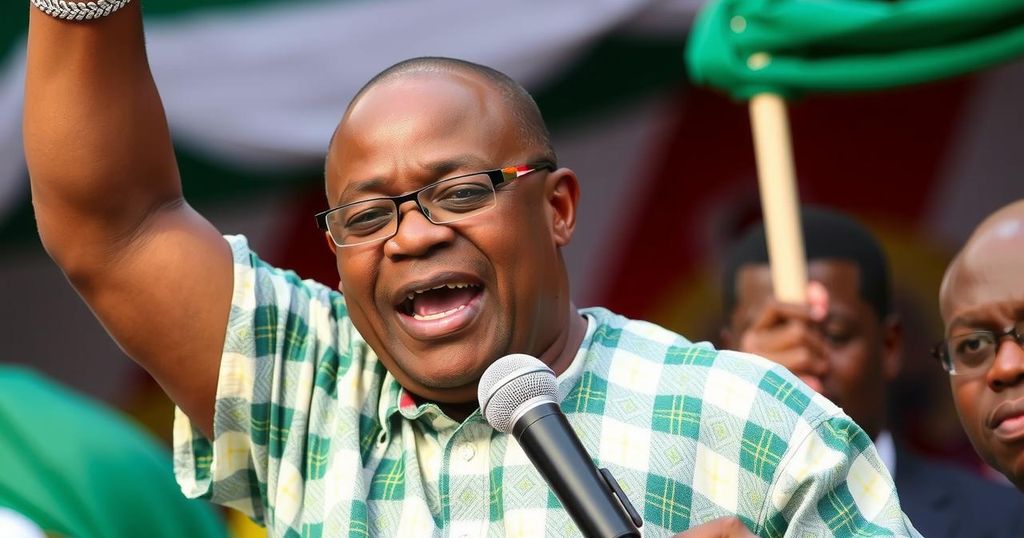John Mahama has been officially declared the winner of Ghana’s presidential election, defeating Mahamudu Bawumia of the NPP with 56 percent of the votes. Mahama’s victory marks a return to power after previous defeats and reflects voter dissatisfaction with economic management. He pledges significant reforms to address economic challenges, having previously led the nation from 2012 to 2016.
On Monday, Ghana’s former opposition leader, John Mahama, was officially declared the winner of the presidential election, decisively defeating ruling party candidate Mahamudu Bawumia by garnering 56 percent of the votes. Voter sentiment suggested widespread dissatisfaction with the New Patriotic Party (NPP) government’s management of economic issues and rising living costs. Mahama’s victory ends the NPP’s eight-year tenure under President Nana Akufo-Addo, which was marked by significant economic difficulties, culminating in an IMF bailout and a debt crisis. In his victory speech, Mahama emphasized the need for reform and pledged to initiate measures to guide Ghana toward economic stability, acknowledging the challenges ahead due to the previous government’s policies. Former Vice President Bawumia, who secured 41 percent of the vote, acknowledged the electorate’s desire for change and stated that the National Democratic Congress (NDC), led by Mahama, had also won the parliamentary elections, further bolstering Mahama’s return to power after prior unsuccessful attempts.
The article discusses the recent presidential election in Ghana, which reflects the electorate’s frustration with economic management under the ruling NPP party. This election is noteworthy not only for Mahama’s victory, marking a pivotal political shift, but also for the historical context of Ghana’s political landscape, which has seen alternating governance between the NPP and the National Democratic Congress (NDC) since the re-establishment of multi-party politics in 1992. The backdrop includes significant economic challenges, a debt crisis, and the impact of inflation on Ghanaians’ lives, shaping the election’s outcome.
In summary, John Mahama’s election as the new president of Ghana signifies a critical shift in governance, driven by public discontent with the previous administration’s handling of economic issues. His commitment to reform and economic recovery resonates with a populace seeking change after years of hardship. This election not only highlights the democratic process in Ghana but also underscores the importance of responsive governance to the citizens’ needs and aspirations.
Original Source: www.france24.com






